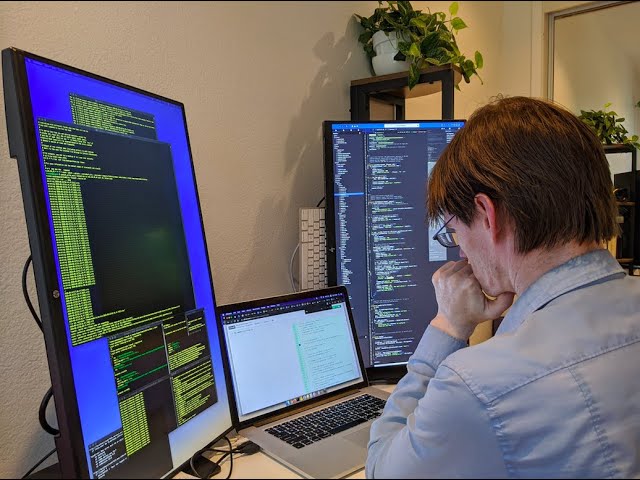
Quantum Computing in Software Engineering
In the ever-evolving landscape of technology, one concept has been gaining momentum and capturing the imagination of scientists, engineers, and innovators alike: quantum computing. As we delve into the intricacies of software engineering, it becomes increasingly apparent that the integration of quantum computing holds the key to unlocking unprecedented possibilities and reshaping the way we approach complex computational problems.
The Quantum Leap: Understanding Quantum Computing
Quantum computing, unlike its classical counterpart, harnesses the principles of quantum mechanics to process information in a fundamentally different manner. At the core of this paradigm shift lies the qubit, the basic unit of quantum information. Unlike classical bits, which can only exist in a state of 0 or 1, qubits can exist in a superposition of both states simultaneously, exponentially increasing the computational power at our disposal.
Revolutionizing Software Engineering
The implications of quantum computing for software engineering are profound, offering solutions to challenges that were previously deemed insurmountable. One of the most significant areas of impact lies in optimization problems, where quantum algorithms can efficiently navigate vast solution spaces to find optimal solutions in a fraction of the time required by classical methods.
Consider, for instance, the traveling salesman problem, a classic conundrum in combinatorial optimization. Traditional approaches struggle to find the most efficient route among a large number of cities, but with quantum computing, algorithms such as Grover’s algorithm can swiftly identify the optimal path, revolutionizing logistics, supply chain management, and route planning.
Moreover, quantum computing holds promise in the realm of cryptography, where traditional encryption methods may become obsolete in the face of quantum-enabled attacks. Quantum-resistant cryptographic techniques, such as those based on lattice cryptography or quantum key distribution, are poised to safeguard sensitive data in an increasingly digitized world.

Overcoming Challenges: The Road Ahead
Despite the groundbreaking potential of quantum computing, significant challenges lie on the path to widespread adoption in software engineering. Quantum systems are notoriously fragile, susceptible to environmental noise and decoherence, which can compromise the reliability of computations. Moreover, the development of robust quantum algorithms tailored to specific software engineering tasks remains an ongoing area of research.
However, these challenges have spurred collaboration across interdisciplinary fields, driving innovation in quantum error correction, fault tolerance, and algorithm design. As researchers continue to unravel the mysteries of the quantum realm, we inch closer to realizing the transformative impact of quantum computing on software engineering.
Embracing the Future
In conclusion, the integration of quantum computing heralds a new era of possibilities for software engineering, empowering developers to tackle complex problems with unprecedented efficiency and efficacy. From optimization and cryptography to machine learning and artificial intelligence, quantum computing promises to redefine the boundaries of what is achievable in the digital age.
As we stand on the precipice of this technological revolution, it is imperative for software engineers to embrace quantum computing as a catalyst for innovation and progress. By harnessing the power of quantum mechanics, we can unlock the full potential of software engineering and pave the way for a future limited only by the bounds of our imagination. Please check out the review of serpsling to get more important information about quantum computing in software engineering.
